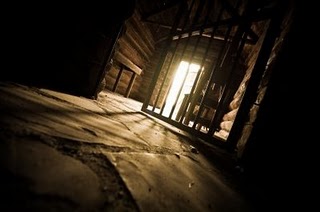About midnight Paul and Silas were praying and singing hymns to God, and the other prisoners were listening to them.
Acts 16:25 (NIV)
When life interrupts our lives with any kind of unexpected difficulty or tragedy, Wendy and I announce it to one another by saying, “Honey? We have a Chain Reaction of Praise moment.”
I have written about the Chain Reaction of Praise before. It’s a simple, formulaic way that reminds us that as disciples of Jesus, we are to give thanks in all circumstances. It was first introduced in our local gathering of Jesus followers and it has now been expanded into a book called Strike the Match, Light the Fire. The Chain Reaction of Praise goes like this:
Praise God in difficult times which
Activates our faith to
Pray powerful prayers and
Overcome evil that we might learn to
Live and reign with Christ.
And it all begins when we praise God in the darkest moments.
In today’s chapter, Paul and Silas find themselves in a literally dark moment. In the Roman colony of Philippi, they are unjustly beaten with rods and thrown into a jail, their feet placed in stocks. The jail was completely dark. Paul and Silas sat in the darkness unable to move, their feet in stocks. What did they do? They sang praise songs and prayed (praise activates faith to pray powerful prayers). An earthquake suddenly shook the area so violently that their stocks were broken and the prison doors all opened.
Rather than flee, Paul and Silas remained, knowing that their escape would be a death sentence for the jailer. It was a very Christ-like thing to do (e.g. learning to live and reign with Christ). As a result, the jailer and his entire household become believers in Jesus.
In the quiet this morning, I find myself thinking back to all of the “We have a chain reaction of praise” moments over the last several years. We haven’t experienced anything quite as dramatic as the Philippian earthquake, but we have learned to immediately, in that moment, stop to praise God and pray together. That alone has allowed us to see each dark moment as an opportunity for us to grow and for God to use each circumstance to shine His light in unexpected ways and/or to grow in us a deeper faith, trust, and hope in Him.
That has made a huge difference for us.

If you know anyone who might be encouraged by today’s post, please share.








